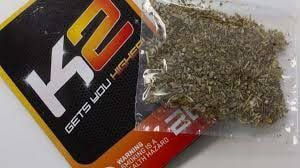K2 Spice Herbal Incense and Drug Testing: Understanding the Impact and Risks
In recent years, the synthetic drug K2, often referred to as “Spice,” has gained attention due to its unpredictable effects and potential dangers. Despite being marketed as a “legal” alternative to cannabis, K2 Spice herbal incense has been linked to severe health risks, unpredictable side effects, and alarming trends in its usage. One of the major concerns surrounding K2 is its ability to evade detection in traditional drug tests, making it a choice for individuals attempting to bypass drug screenings.
This blog post delves deep into the world of K2 Spice herbal incense , exploring what it is, how it affects the body, its impact on drug testing, and the broader implications for individuals who use it. Additionally, we’ll cover how K2 Spice can affect drug test results, the science behind synthetic cannabinoids, the risks associated with usage, and the evolving nature of drug tests aimed at detecting K2.
What Is K2 Spice ?
K2 Spice is a synthetic cannabinoid, meaning it is a man-made chemical designed to mimic the effects of THC (tetrahydrocannabinol), the psychoactive compound found in cannabis. Unlike natural cannabis, K2 Spice is created by spraying synthetic chemicals onto plant material, which is then smoked, vaporized, or consumed in various other forms.
The product is often marketed under the guise of being an herbal incense or potpourri, but it is intended for recreational drug use. The main appeal of K2 Spice is its ability to produce cannabis-like effects while remaining undetected in many standard drug tests. For this reason, it has become popular in certain circles, including athletes, military personnel, and others who face regular drug screenings.
K2 Spice comes in colorful packaging, often marketed with misleading names such as “herbal incense,” “legal high,” or “synthetic marijuana,” to attract users. However, despite its seemingly harmless presentation, K2 Spice is anything but safe. In fact, it is linked to a range of severe side effects, some of which can be life-threatening.
The Chemical Makeup of K2 Spice herbal incense
What makes K2 Spice particularly dangerous is its unpredictable chemical composition. Unlike cannabis, which contains a consistent set of cannabinoids like THC and CBD, K2 Spice’s synthetic cannabinoids can vary widely from batch to batch. Manufacturers of K2 Spice frequently change the chemical compounds used in the product to evade regulation and detection.
Some of the synthetic chemicals found in K2 Spice are JWH-018, HU-210, CP and other compounds that act on the brain’s CB1 receptors, similar to THC. However, these chemicals are often much more potent than THC and can have severe psychoactive and physical effects on the user.
The exact ingredients used in K2 Spice can be unknown even to the user, and this inconsistency in its chemical structure increases the risk of overdose, poisoning, or adverse reactions. The absence of proper regulations in its production means that there is no oversight on dosage, safety, or purity, making it a particularly dangerous substance to consume.
Effects of K2 Spice on the Body
When smoked or consumed, K2 Spice can produce effects that are similar to those of cannabis, but with some key differences. The effects of K2 Spice can be far more intense, unpredictable, and dangerous compared to natural cannabis. Here are some common effects of using K2 Spice:
Short-Term Effects:
- Euphoria: Users may feel a short burst of happiness, relaxation, and a sense of well-being, similar to the high associated with cannabis use.
- Altered Perception: K2 Spice can cause significant changes in perception, leading to visual or auditory hallucinations, distortions in time, and a sense of detachment from reality.
- Increased Heart Rate: Many users experience a rapid increase in heart rate, which can be dangerous, especially for individuals with pre-existing heart conditions.
- Anxiety and Paranoia: While some users may feel euphoria, others can experience heightened anxiety, paranoia, and even panic attacks. These mental effects can persist for hours or even days.
- Nausea and Vomiting: K2 Spice often leads to intense nausea, dizziness, and vomiting, particularly for users who have ingested too much or have a low tolerance.
- Agitation and Aggression: Users may become irritable, agitated, or even aggressive after consuming K2 Spice, leading to erratic and dangerous behaviors.
Long-Term Effects: K2 spice herbal incense
- Memory Loss: Long-term users of K2 spice herbal incense often report cognitive impairments, including memory loss and difficulty concentrating.
- Dependence and Addiction: While K2 Spice is marketed as a “legal” or “natural” product, it can be highly addictive, with users experiencing withdrawal symptoms similar to other drugs.
- Psychosis: Repeated use of K2 Spice has been linked to episodes of psychosis, including paranoia, delusions, and hallucinations that can persist even after the drug has worn off.
- Cardiovascular Issues: The increased heart rate and blood pressure associated with K2 spice herbal incense use can lead to long-term cardiovascular problems, including heart attacks and strokes.
- Organ Damage: Because of the toxic chemicals used in K2 spice herbal incense , long-term use can lead to damage to major organs such as the liver, kidneys, and lungs.
K2 Spice and Drug Tests
One of the main reasons why K2 Spice has become popular is its reputation for being difficult to detect in traditional drug tests. Unlike natural cannabinoids like THC, the synthetic chemicals used in K2 spice herbal incense do not show up in most standard urine, blood, or hair follicle drug tests. This has made K2 Spice an attractive option for individuals who want to avoid failing a drug test but still experience a cannabis-like high.
Why Does K2 Spice Evade Detection?
Traditional drug tests are designed to detect specific substances, such as THC, cocaine, opiates, and other common drugs of abuse. These tests target the metabolites that the body produces when breaking down these substances. However, K2 spice herbal incense is composed of synthetic cannabinoids, which are structurally different from THC and do not metabolize in the same way.
Because K2 Spice is constantly changing in its chemical makeup, it is difficult for drug testing companies to keep up with the new compounds being introduced. Even when a specific synthetic cannabinoid is detected and a test is developed, manufacturers of K2 Spice can quickly alter the formula to produce a new version of the drug that remains undetectable by the latest testing methods.
Types of Drug Tests
There are several types of drug tests commonly used, each with its own strengths and limitations when it comes to detecting substances like K2 Spice:
- Urine Tests: The most common form of drug testing, urine tests can detect a wide range of substances, including THC. However, traditional urine tests do not typically screen for synthetic cannabinoids like K2 Spice unless specifically designed to do so.
- Blood Tests: Blood tests are less common but can detect the presence of drugs in the bloodstream at the time of testing. Synthetic cannabinoids may be present in the blood for a short period after use, but standard blood tests are not always capable of detecting them.
- Hair Follicle Tests: Hair follicle tests can detect drug use over a longer period, as drug metabolites are deposited in the hair shafts. However, synthetic cannabinoids are less likely to be detected by these tests unless a specialized test is used.
- Saliva Tests: Saliva tests can detect recent drug use, but like other testing methods, they may not be able to detect synthetic cannabinoids unless specifically designed to do so.
Detection of Synthetic Cannabinoids in Drug Tests
As K2 Spice has grown in popularity, drug testing companies have begun developing new tests specifically designed to detect synthetic cannabinoids. These tests are more sophisticated and can detect a wider range of synthetic chemicals used in products like K2 Spice. However, due to the constantly evolving nature of K2 Spice, even these tests may not be able to detect every version of the drug.
The Risks of Relying on K2 Spice to Pass a Drug Test
While K2 Spice may not be detected in traditional drug tests, relying on it as a way to pass a drug test carries significant risks. Not only is K2 Spice unpredictable and dangerous, but drug testing companies are also continually updating their methods to detect synthetic cannabinoids. As more sophisticated tests become available, individuals who use K2 Spice may still be at risk of failing a drug test.
Furthermore, the health risks associated with K2 Spice far outweigh any potential benefits. Users may experience severe side effects, including hospitalization or even death, due to the toxic and unpredictable nature of the drug. It is essential to understand that just because K2 Spice may not show up on a drug test does not mean it is a safe or viable alternative to other substances.
Legal Status of K2 Spice
K2 Spice is often marketed as a “legal high,” but the reality is that many forms of K2 Spice are illegal in numerous countries, including the United States. In 2011, the U.S. Drug Enforcement Administration (DEA) placed several synthetic cannabinoids, including those found in K2 Spice, on the Schedule I list of controlled substances, making it illegal to manufacture, sell, or possess these chemicals.
Despite these regulations, manufacturers continue to produce new versions of K2 Spice by altering the chemical composition of the drug to stay ahead of the law. This has led to a cat-and-mouse game between regulators and manufacturers, with new versions of K2 Spice emerging even after previous versions have been banned.
The Future of Drug Testing and K2 Spice
As drug testing technologies continue to evolve, it is likely that detecting synthetic cannabinoids like K2 Spice will become more common. Employers, law enforcement agencies, and athletic organizations are increasingly recognizing the dangers of K2 Spice, and testing protocols are being updated to reflect this.
New testing methods, such as liquid chromatography-tandem mass spectrometry (LC-MS/MS) and gas chromatography-mass spectrometry (GC-MS), are more accurate and can detect even small amounts of synthetic cannabinoids. Additionally, researchers are working to develop more comprehensive drug panels that include K2 Spice and other emerging substances.
For individuals who use K2 Spice in an attempt to pass a drug test, it is important to be aware that these new tests may soon make it much harder to avoid detection. Moreover, the risks associated with using K2 Spice far outweigh any perceived benefits of avoiding a positive drug test result.
Conclusion: The Dangers of K2 Spice and Drug Testing
K2 Spice presents significant challenges both in terms of its health risks and its ability to evade detection in traditional drug tests. While it may seem like an attractive option for individuals looking to experience a cannabis-like high without the risk of failing a drug test, the reality is that K2 Spice is a dangerous and unpredictable substance with severe side effects.
The evolving nature of drug testing means that synthetic cannabinoids like K2 Spice are becoming easier to detect, and relying on this substance to pass a drug test is becoming increasingly risky. Furthermore, the health risks associated with K2 Spice, including addiction, organ damage, and even death, make it a dangerous alternative to natural cannabis.
For those facing drug tests, the safest option is to avoid using substances like K2 Spice altogether. With drug testing technologies improving and the legal landscape around synthetic cannabinoids shifting, it is clear that the risks of using K2 Spice far outweigh any potential benefits.




